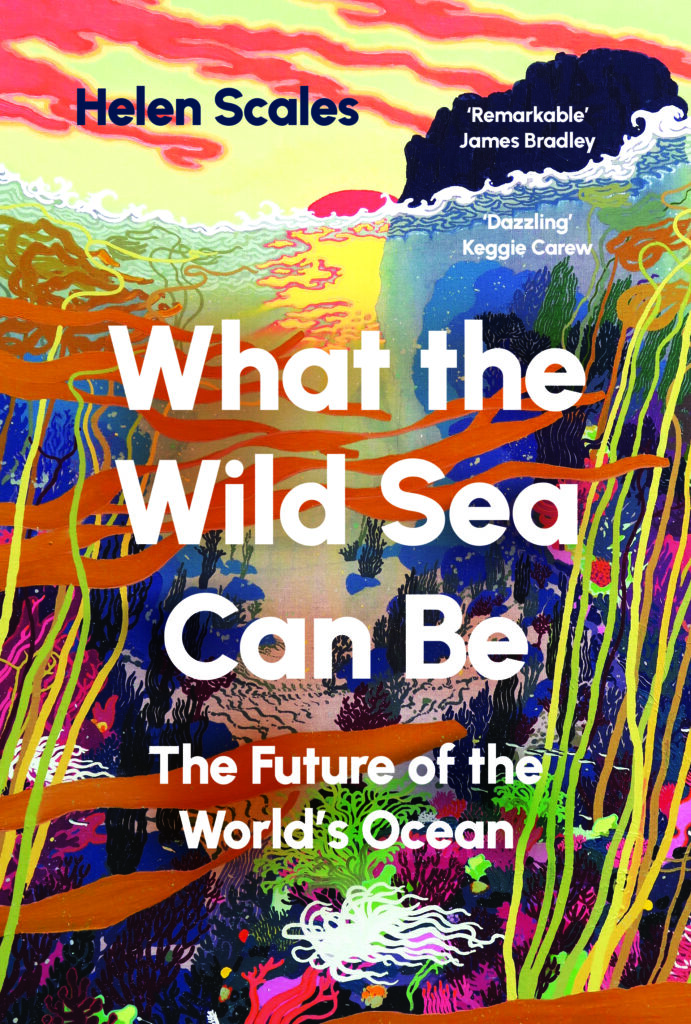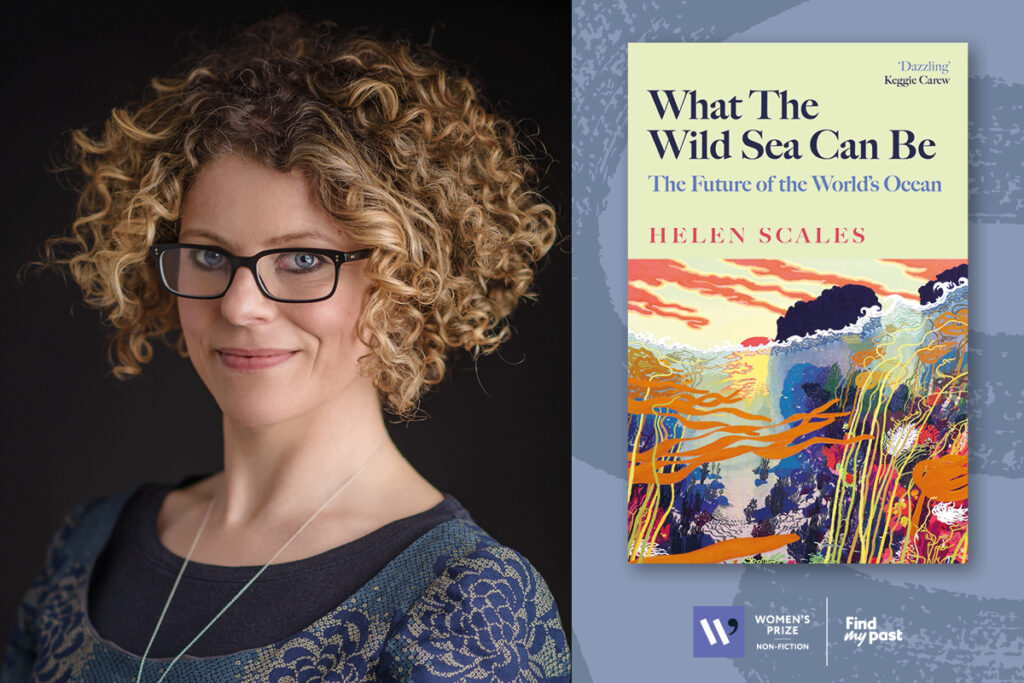What the Wild Sea Can Be by Helen Scales provides an impassioned examination of the existential threat to our oceans, with a cautious optimism for its protection.
Shortlisted for the 2025 Women’s Prize for Non-Fiction, judge Elizabeth-Jane Burnett describes the book as: ‘A widely researched, deeply resonant account of our threatened oceans which strikes a helpful balance between hope and pragmatism.’
To find out more about the book we spoke to Helen about her writing, research and current reads.
How would you describe your book to a new reader?
I would describe What the Wild Sea Can Be as a journey through the ocean in the company of a cast of species whose stories have a lot to say about our changing world. There are animals you’ll know already, like emperor penguins and orcas, alongside others I expect you’ll be meeting for the first time, especially when we venture into the past and encounter things like giant swimming sloths and car-sized turtles that are long gone and now seem like fairy tales. My aim is to celebrate them all, to reveal joyful details of lives past and present and to show that although humans are altering the ocean more profoundly than ever it’s not too late to act.
The book is partly a pragmatic guide to thinking about environmental problems without giving up in despair and partly an unashamed love letter to the ocean. It’s about wonder and survival, restoration and justice and fighting for better things to come.
What is the one thing you’d like a reader to take away from reading your book?
I’d like readers to know that it’s possible, and important, to be both optimistic and pessimistic about the future of the ocean and our whole living planet. You don’t have to try and decide to be either hopeful or fearful. I am still angry about what’s happened so far and scared about what could come. But I also have hope knowing that ocean life is resilient and has an immense power to recover, and that there are so many people who care and want to be part in undoing the problems.
How did you go about researching your book? What resources did you find the most helpful?
I read masses of peer reviewed scientific studies. I carefully planned a research trip (just the one) spanning several Scottish isles that I decided were important for the book’s narrative. I also mined my journals and dive log books. I’m eternally grateful to my past self for being an avid chronicler of my dives and travels.
Which female non-fiction author would you say has impacted your work the most?
Rachel Carson. I first read her ocean books as a teenager when they were already decades old, but they felt timeless.
What is the best piece of writing advice you have ever received?
Half way through writing my first book I met an author friend for tea. I was busy explaining my travel plans for two more research trips (I had already been on two) when he gently but firmly told me not to go anywhere. At that point, all I needed to do was sit down and write the rest of the book. Of course he was right. Since then, I’ve got a lot better at knowing when I have enough of a story and I need to stop using research as a means to procrastinate, and instead just get on and write.
Is there a non-fiction book you recommend all the time? If so, what is it and why do you recommend it?
Sightlines by Kathleen Jamie. I adore all of Jamie’s work. She brings what feels to me to be the perfect amount of poetry to her prose about the natural world, and I enjoy her way of looking and thinking about things. I often give her books to friends who I know will appreciate taking moments to stop what they’re doing and immerse themselves in her words.
What are you currently reading?
Water Baby by Chioma Okereke









